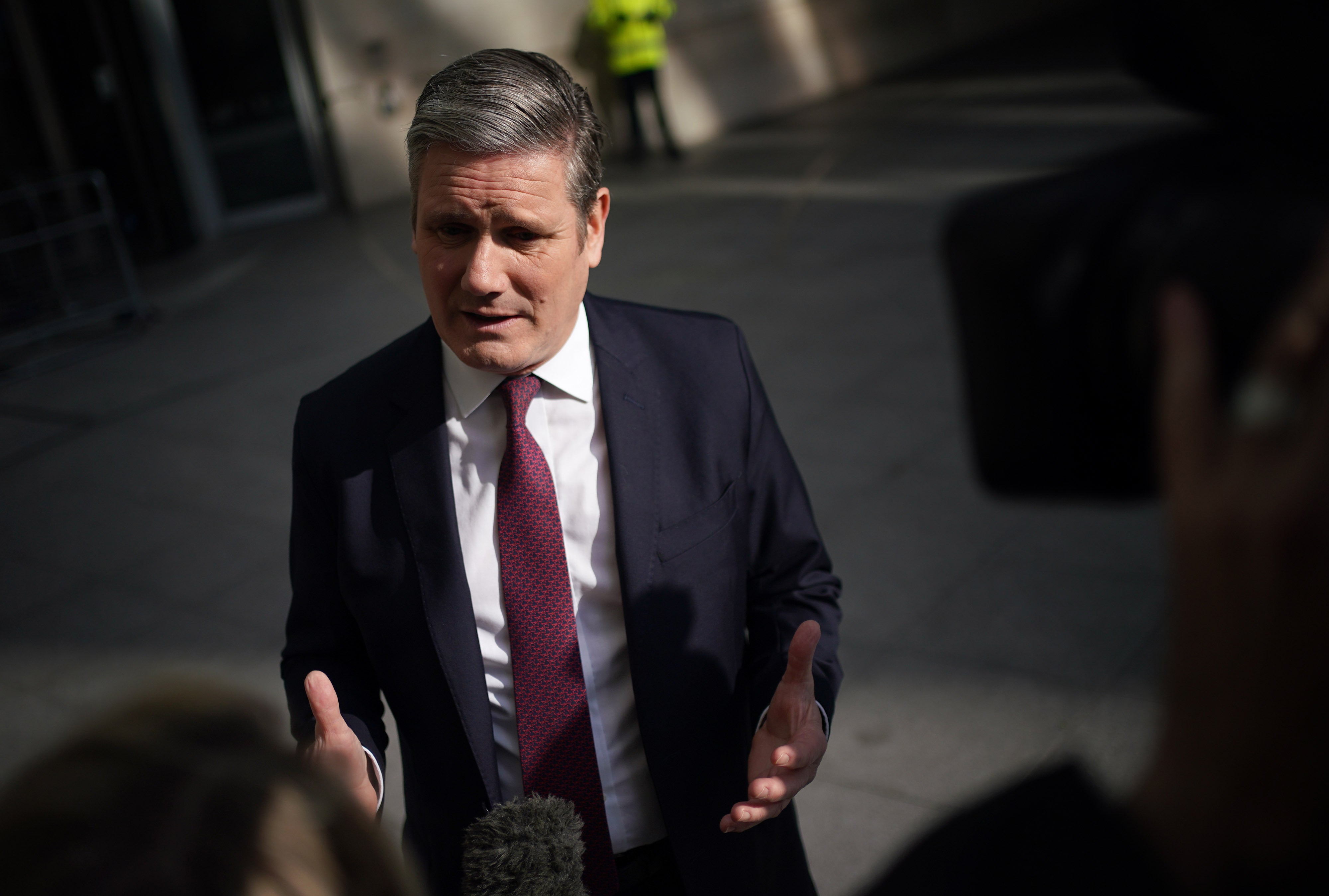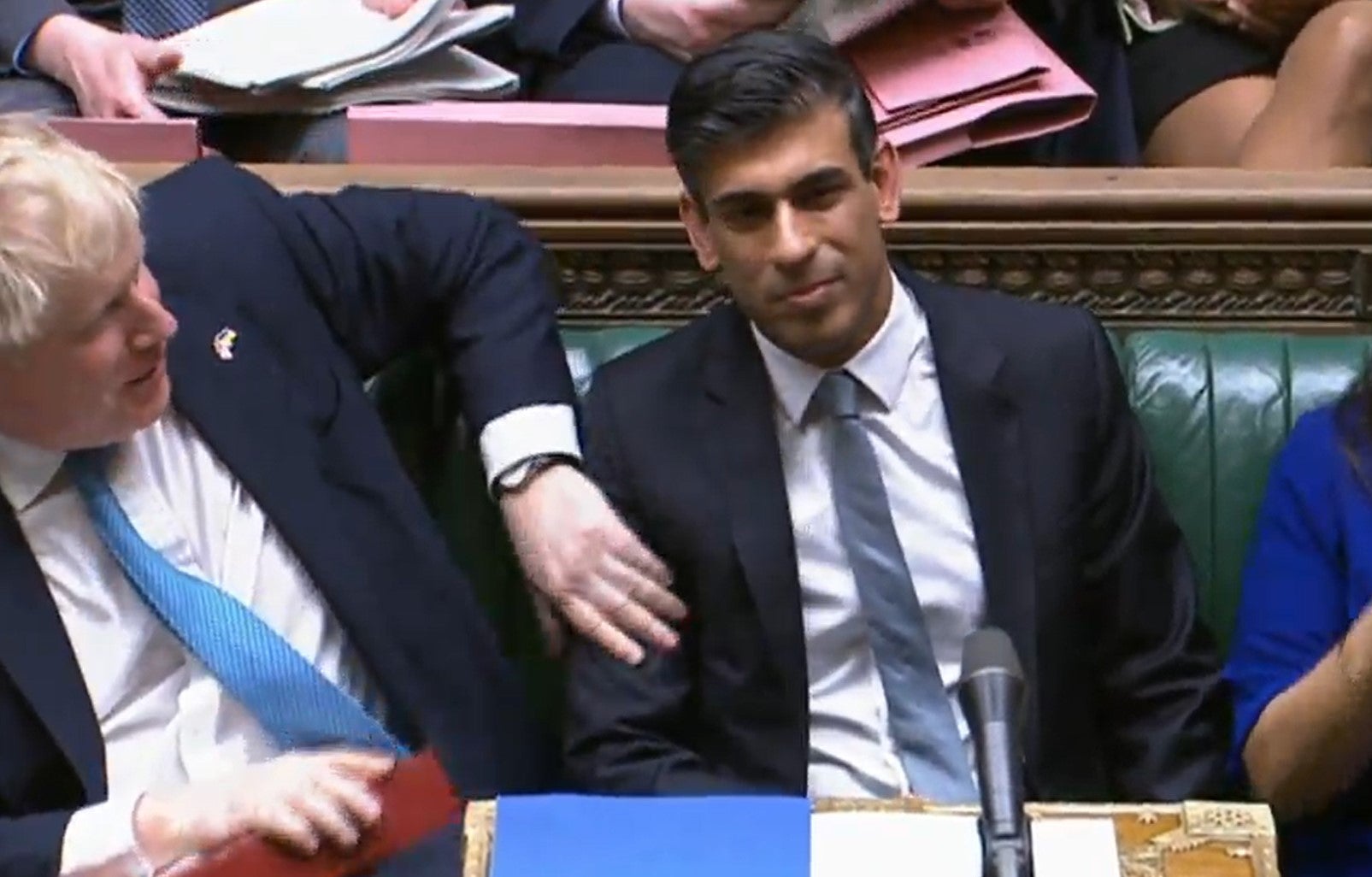Households to be ‘£2,620 worse off’ despite Rishi Sunak’s spring statement , Labour warn
Labour leader Sir Keir Starmer pledges to cut energy bills by up to £600
Your support helps us to tell the story
From reproductive rights to climate change to Big Tech, The Independent is on the ground when the story is developing. Whether it's investigating the financials of Elon Musk's pro-Trump PAC or producing our latest documentary, 'The A Word', which shines a light on the American women fighting for reproductive rights, we know how important it is to parse out the facts from the messaging.
At such a critical moment in US history, we need reporters on the ground. Your donation allows us to keep sending journalists to speak to both sides of the story.
The Independent is trusted by Americans across the entire political spectrum. And unlike many other quality news outlets, we choose not to lock Americans out of our reporting and analysis with paywalls. We believe quality journalism should be available to everyone, paid for by those who can afford it.
Your support makes all the difference.Households are set to be £2,620 out-of-pocket as the cost of living crisis squeeze the country, Labour will say on Thursday.
The poorest, out-of-work households will be the worst-off groups in measures announced by the Chancellor Rishi Sunak last week in his spring statement, senior economists told the Treasury Select Committee.
The new analysis from Labour - as it launches its local election campaign - comes as the Prime Minister is under increasing pressure to tackle spiralling costs and experts warned of the impacts.
Sir Keir Starmer will call on voters to “send the Tories a message they cannot ignore” as he pledges to cut energy bills by up to £600 - funded by a windfall tax on oil and gas companies.

He will say: “Britain deserves better than the pathetic response we got to the Conservative cost of living crisis in the mini-Budget.
“You know the reality - prices are going through the roof, and wages are going through the floor.”
He will claim the Conservatives have overseen “the biggest drop in living standards since the 50s” and the highest taxes in 70 years.
“Even allowing for everything the Chancellor announced, families are £2,620 worse off. Britain deserves better than this,” he will say, based on Labour research which combines estimates about the rise in the tax burden, energy prices, petrol, food shopping and mortgage costs.
“Working families feel more insecure than ever. While prices are rising in the supermarkets, at the petrol pumps and in our electricity bills, the Government has chosen to put up national insurance at exactly the wrong time.
“That’s why Labour would tackle the Tory cost-of-living crisis by cutting your bills by up to £600 funded by a windfall levy on the excess profits of the oil and gas companies.”
The Prime Minister admitted on Wednesday that child poverty is an issue the Government must “fix”.
But he defended Mr Sunak’s decision not to uprate Universal Credit in the spring statement to help people to pay their rising energy bills.
The Prime Minister told the Commons Liaison Committee that the aim was to get people into work but denied that he had lost confidence in the benefits system, saying: “I know how tough it is for people to meet the cost of energy and I think you’re raising a very reasonable point.
“And you have to decide where you’re going to put your fiscal firepower given that we don’t want to put up taxes and we don’t want to borrow any more, so what are you going to prioritise and who are you going to make sure you target in order to have the maximum economic benefit for the whole country?
“What we think very strongly is you’re better off helping people into work.”

Earlier, Torsten Bell, chief executive of the Resolution Foundation think tank, pointed out that lower-income households will feel the pressure from rising energy bills - which is driving inflation.
He said he was “very surprised” with the package the Chancellor had chosen when it came to helping low-income households.
The economist said: “It is an odd choice to have offered basically next to nothing to those households in this spring statement.
“I didn’t think he would do that and I was wrong.”
The Resolution Foundation has calculated that the cost of living crisis will push 1.3 million households into absolute poverty.
Middle-income households can expect to see disposable income fall 4% next year after housing costs and for those in the poorest quarter, income falls 6%, and for out-of-work households it falls by 8%, it said.
Mr Bell added: “The surprise is he didn’t try to do anything to reduce the increase in absolute poverty.
“The Chancellor has consistently gone out of his way to concentrate support for those in work.
“The blindingly obvious answer is you need to uprate benefits in April by more than we are doing, so that the level of the real terms cut over the course of this particular year isn’t huge.”
Paul Johnson, director of the Institute for Fiscal Studies (IFS), agreed with an uprate in benefits and said there are mechanisms available to do it.
He told MPs: “These are really big falls in the real living standards for households that are budgeting over relatively short periods of time.
Gemma Tetlow, chief economist at the Institute for Government (IfG), said all groups will feel the pain of the cost-of-living crisis, but higher income households will be better protected because they managed to save money during the pandemic.
Follow our politics blog for live updates.



Join our commenting forum
Join thought-provoking conversations, follow other Independent readers and see their replies
Comments